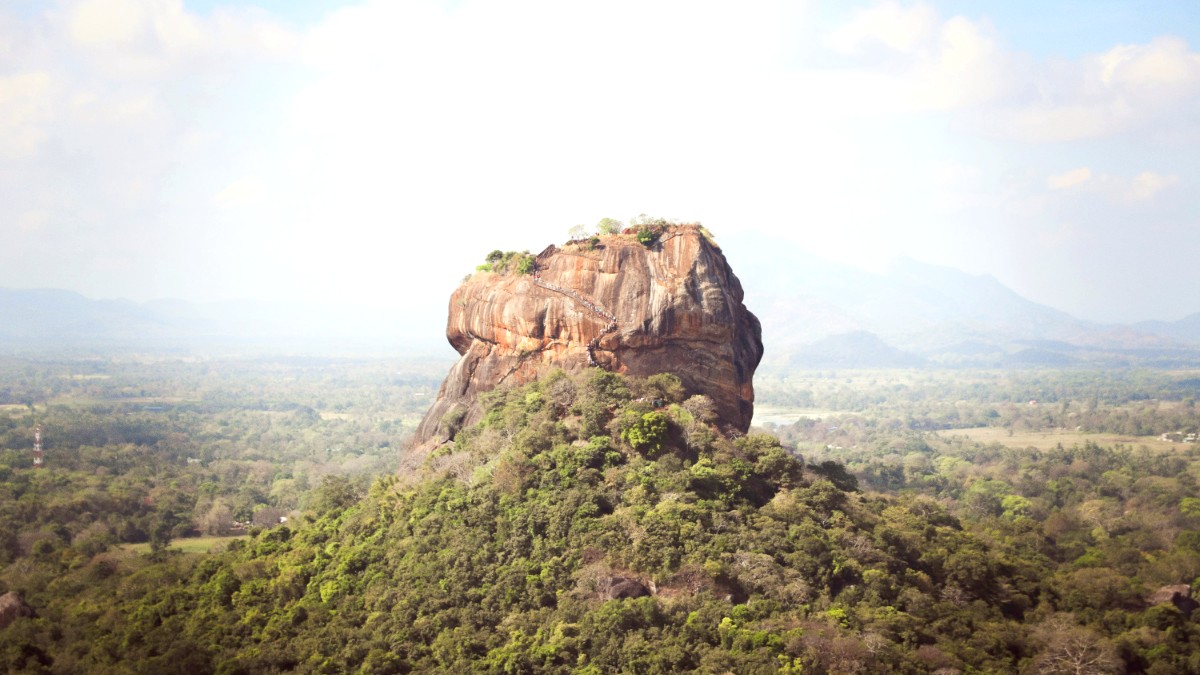
The Ancient Cities, Sri Lanka
Sigiriya and surrounding national parks are protected for conservation.
Reduce plastic use, dispose of waste properly, and conserve water.
Choose eco-friendly accommodation and tour operators.
Minimize your impact on Sri Lanka's natural environment.
Sigiriya is an UNESCO site. National parks focus on wildlife, especially for elephants.
Reduce plastic, use reusable items, and dispose of waste properly.
Be mindful of water usage in hotels. Take shorter showers and reuse towels.
Consider offsetting your carbon emissions from international flights and long-distance travel.
Choose properties that use renewable energy, conserve water, and minimize waste.
Find eco-friendly stays on Ecobnb.Inquire about sustainability practices. Support operators committed to environmental protection.
Explore ethical tours with G Adventures.Every small action towards sustainability helps preserve Sri Lanka's beauty for future generations. Offset your travel carbon with Terrapass.
Engage thoughtfully with local communities and support their livelihoods.
Support initiatives that preserve local heritage and traditions.
Learn basic Sinhala phrases and always ask permission for photos.
Dress modestly, remove shoes and hats, and maintain silence in temples.
Be sensitive when photographing people, avoid vulnerable situations.
Ensure your visit directly benefits local communities and businesses.
Stay in homestays, take cooking classes, or join village tours led by locals. This money goes directly to families.
Purchase from local artisans or small, locally-owned shops. Avoid aggressive bargaining. Shop sustainable outdoor gear from Patagonia.
Dine at locally-owned restaurants, use local transport, buy fresh produce from markets. This spending supports livelihoods.
Your choices contribute to the well-being of local communities and the preservation of Sri Lanka's heritage. Find reusable products at Package Free Shop.
Make conscious choices for a positive and responsible travel experience.
Look for fair trade certifications and purchase directly from local artisans.
Prioritize dining at locally-owned restaurants and using local transportation like tuk-tuks.
Be aware of potential exploitation, especially concerning children or vulnerable populations.
If donating, do so through established charities or community projects, not directly to individuals.
Think about the broader impact of your travel choices.
Every small action like reusing a water bottle lessens your impact.
Learn a few phrases; it opens doors to genuine local interactions.
Your spending decisions directly affect local families and businesses.
Always thoroughly research any animal-related tourism to ensure ethical practices and animal welfare. Avoid rides on elephants or other wild animals. Support conservation with GreaterGood.
Traveling responsibly both you and the destination, fostering sustainable tourism.